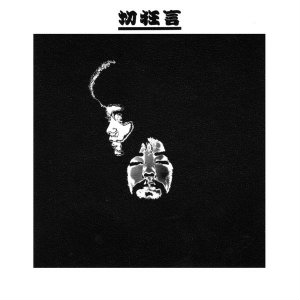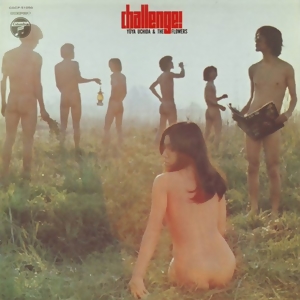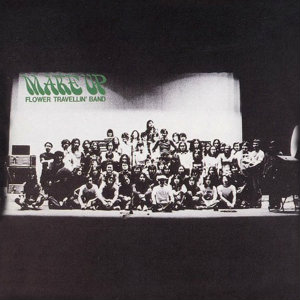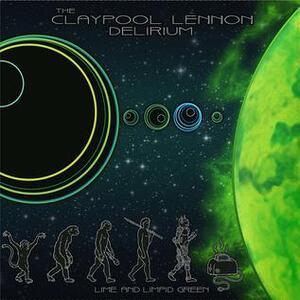Lighthouse is a Canadian rock band formed in 1968 in Toronto, Ontario. Their sound included horns, string instruments, and vibraphone; their music reflected elements of rock music, jazz, classical music, and swing. They won Juno Awards for Best Canadian Group of the Year in 1972, 1973, and 1974.

Yuya Uchida was a Japanese singer, record producer, and actor. With a career spanning six decades, he was a major figure in Japanese popular music.
Kenji Sawada is a Japanese singer, composer, lyricist and actor, best known for being the vocalist for the Japanese rock band The Tigers. Nicknamed "Julie" because of his self professed adoration of Julie Andrews, he was born in Tsunoi, Iwami, Tottori Prefecture, Japan, and raised in Sakyo-ku, Kyoto at age 3.

The music of the Kingdom Hearts video game series was composed by Yoko Shimomura with orchestral music arranged by Kaoru Wada. The original soundtracks of the games have been released on three albums and a fourth compilation album. The soundtracks to the Kingdom Hearts games feature several musical pieces from both Disney films and Final Fantasy games, including such pieces as "Mickey Mouse Club March" by Jimmie Dodd, "This Is Halloween" by Danny Elfman, and "One-Winged Angel" by Nobuo Uematsu. They also feature several vocal songs, the most notable being the two main theme songs, "Hikari" and "Passion". The two themes were written and performed by Japanese American pop star Hikaru Utada; in addition to Japanese, English versions of both songs were produced, titled "Simple and Clean" and "Sanctuary", respectively.

We Are Here is the fifth and final album by Japanese rock band Flower Travellin' Band, released in September 2008 by Pony Canyon Records. It is their only album after reuniting in November 2007 and the only one to feature keyboardist Nobuhiko Shinohara as a full member. We Are Here peaked at number 299 on the Oricon chart.
Kuni Kawachi is a Japanese keyboardist. His first musical act was in The Happenings Four, and also performed writing contributions to Tokyo Kid Brothers’ version of Throw Away the Books, We're Going Out On the Streets. He also recorded with members of the Flower Travellin' Band.

Kirikyogen is a 1970 album by Japanese musician Kuni Kawachi and the Flower Travellin' Band. It was originally credited to "Kuni Kawachi and his Friends" when initially released. The album showcases Kuni Kawachi's progressive rock influences, as well as the growing heavy metal sound that the Flower Travellin' Band was honing.

Challenge! is the debut studio album by Japanese rock band Flower Travellin' Band, then called Yuya Uchida & The Flowers, released in 1969. It features mainly cover songs, and was a means for Yuya Uchida to explore the emerging psychedelic rock movement outside his own career, and to introduce the work of upcoming Western bands such as Cream, Big Brother and the Holding Company, The Jimi Hendrix Experience, Jefferson Airplane to a Japanese audience. It was named number 34 on Bounce's 2009 list of 54 Standard Japanese Rock Albums.

Anywhere is a 1970 album by Japanese rock band Flower Travellin' Band. It was their first release under the Flower Travellin' Band name and the first to feature the classic line-up of Joe Yamanaka, Hideki Ishima, Jun Kozuki and Joji Wada. AllMusic rated the album 3 out of 5 stars, describing the music as a "unique mixture of progressive daring, psychedelic eccentricity, and muscular, heavy rock austerity".

Make Up is the fourth album by Japanese rock band Flower Travellin' Band, released in 1973. It is a double album, featuring both live and studio recordings.

Akira Yamanaka, better known as Joe Yamanaka (ジョー山中), was a Japanese singer and actor. He is known for both his work with Flower Travellin' Band and as a solo musician; singing at a vocal range of three octaves. As an actor, he appeared in many television shows and movies, such as Takashi Miike's Deadly Outlaw: Rekka and the 1989 version of Zatoichi.

Hideki Ishima is a Japanese musician, known primarily for his work with Flower Travellin' Band. A guitarist and sitar player for nearly forty years, he now exclusively plays the sitarla, an instrument he invented in 2000 that combines aspects of a sitar with an electric guitar.

The sitarla is an instrument invented in 2000 by Japanese musician Hideki Ishima that combines aspects of the sitar with the solid body electric guitar. It is a hollow-bodied instrument, 3 1/2 tones lower than a guitar, with only three existing in the world as of 2008.

Resurrection is a 2008 live DVD released only in Japan by Flower Travellin' Band. It commemorates their reunion in the 21st century, and features two discs. The first disc features an entire concert, while the second features interviews and other special features. It was recorded at the Hibiya Open-Air Concert Hall.
GRT Records was the name of both a U.S. and a Canadian record label, both created by General Recorded Tape, that existed from 1969 to 1979. Their demise was concurrent with the bankruptcy of their owner, General Recorded Tape.
Japanese metal is heavy metal music from Japan.

Lime And Limpid Green is a 2017 EP of covers released by the psychedelic rock duet of Les Claypool and Sean Lennon, under the name The Claypool Lennon Delirium. The album comprises four covers of songs originally by Pink Floyd, The Who, King Crimson and Flower Travellin' Band. Lennon, whose mother Yoko Ono introduced him to the Flower Travellin Band's work and who knew its members, chose their song as a nod to his fellow Japanese, who he said had been suffering since the 2011 Tōhoku earthquake and tsunami. It was originally released for Record Store Day in 2017, but it was eventually made available streaming.














